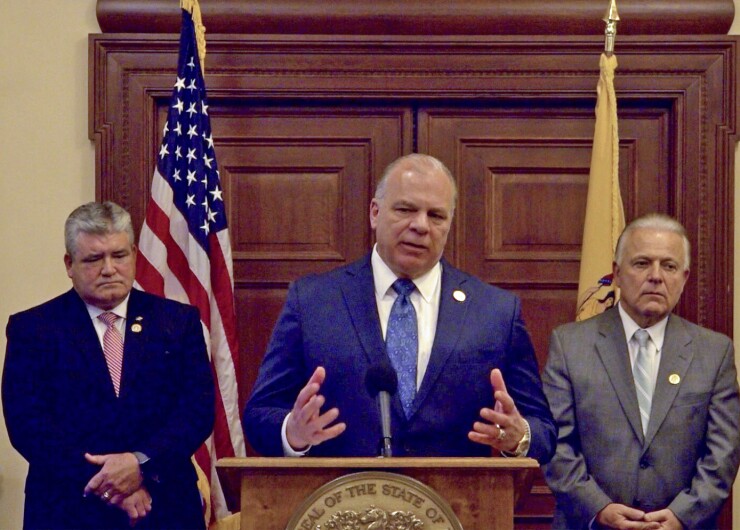In the wake of New Jersey Transit
Experts from the Tri-State Transportation Campaign and Regional Plan Association pushed new taxes to support needed infrastructure and service fixes during a hearing last month before the State Senate Select Committee on NJ Transit. Senate President Steve Sweeney, D-Gloucester, is planning to release a proposal soon that earmarks new revenues toward the mass transit system, which needed a $500 million

“We’re going to look at everything,” Sweeney told reporters. “We are going to come up with a dedicated source of funding because that’s what [NJ] Transit needs at the end of the day and our economy is actually going to benefit if we improve mass transportation.”
Kate Slevin, the Regional Planning Association’s senior vice president of state programs, noted during the December hearing that NJ Transit has been forced in recent years to transfer at least $400 million from its capital budget to meet basic needs. NJ Transit’s operational and maintenance costs have also risen nearly 30% in the past 10 years while state subsidies declined, Slevin said.
Slevin suggests regular dedicated revenue sources to fund NJ Transit operations such as raising the state’s sales tax rate back to 7% from the 6.625% level it was brought down in 2016 under former Gov. Chris Christie. Permanent extensions of business income tax surcharges and establishment of a “Millionaire’s Tax” could also prove helpful toward aiding the nation’s largest statewide mass transit system, according to Slevin.
“For too long, New Jersey Transit has suffered unpredictable funding, especially for day-to-day transit operations,” Slevin said. “Annual uncertainty about resources available has a paralyzing effect on transit agencies.”
“I think we need to look at all the possible revenue streams,” Chernetz said. “I think what’s important is that we don’t leave any stone unturned or any dollar unaccounted for, and diversifying those revenues so that we’re not heavily relying on one or another.”
Richard McGrath, a spokesman for New Jersey Senate Democrats, said Sweeney is expected to release details on a plan for new NJ Transit revenue sources in February. Chernetz said last week that Murphy also is scheduled to release his 2021 fiscal year budget proposal in February and she hopes the two sides can be on same page with NJ Transit’s funding needs.
The current 2020 New Jersey budget that expires June 30 directed $75 million of new direct funding toward NJ Transit. The Democratic governor released a 179-page





